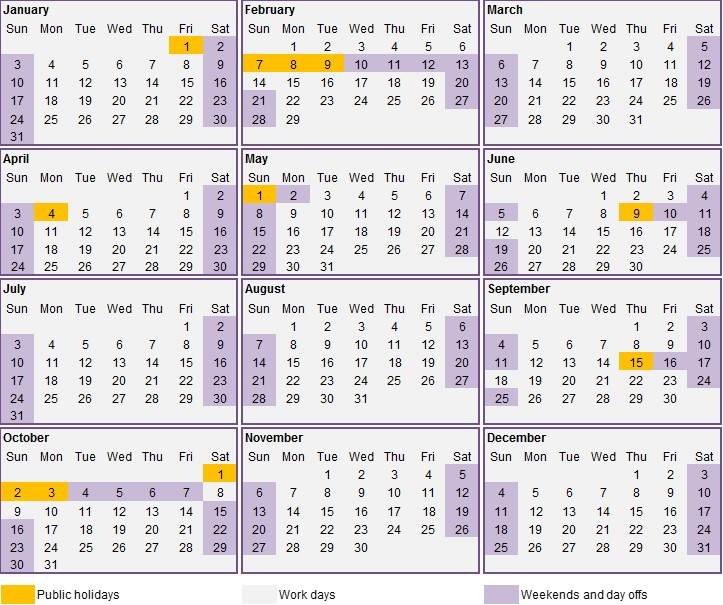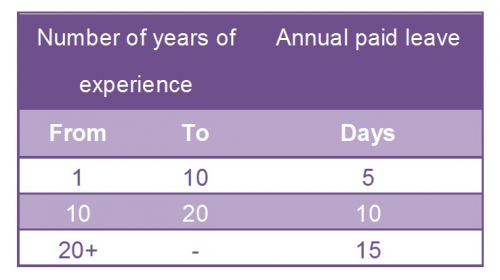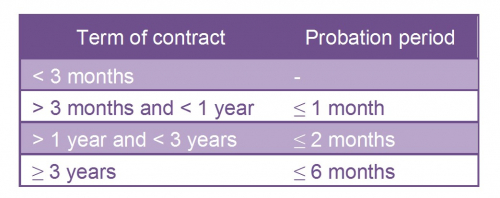
Legal holidays 2016 in Mainland China: impact for companies
In Mainland China, holidays are based on 7 main celebrations (New Year’s Day, Spring Festival, Tomb Sweeping Festival, Labor Day, Dragon Boat Festival, Mid-Autumn Festival, National Day).
Legal holidays 2016 calendar
Companies are highly recommended to take into account the legal holidays (see below) when planning their activities. Please refer to the section “additional wage” below in case, the employer is not able to arrange the activities differently and requires the employees to work during public holiday.
Did you know?
Paid leaves
Besides weekends and public holidays, employees are entitled to paid leaves. Annual paid leaves are based on the employee’s total number of years of working experience:
Employers who cannot arrange for annual leave for employees due to job requirements will have to obtain the consent from each of the concerned employees. To compensate those employees, employers shall pay 300% of the daily wage income.
Term of contract
There are essentially 3 categories of contracts:
- fixed-term – termination date is defined and agreed by both parties;
- open-end – no termination date;
- project-based – termination is fixed by completion of project.
The employer is required to sign an open-end contract with the employee when one of the following criteria is met:
- the employee worked for the employer for 10 consecutive years;
- 2 fixed-term contracts are completed.
Additional wages
The employee will receiveadditional wages in the following cases:
- 150% of normal wage should the employee be required to work more than 8h a day (40h a week) during weekdays;
- 200% of normal wage should the employee be required to work during weekends and no rest is arranged;
- 300% of normal wage should the employee be required to work during public holidays.
Special working hour system may be put in place (e.g. flexible working hours) in order to cope with specific working situations but it needs to be approved by the relevant authorities.
For instance, under a flexible working hours system, employees are not subject to time limits (8h aday and 40h a week), and the employer is not obliged to remunerate overtime. Such flexible working hours system can only be put in place for certain categories of employees: i.e. management, salesmen, etc.
Probation period
Probation period is capped according to the term of contract, as follows:
The probation period cannot be renewed. As a result, if an employer sign a 4-month contract and renew it, there will be only 1 month of probation.
During the probation period, either of the two parties can end the contract without prior notice. Under certain conditions, the employer can break the contract without compensation.







